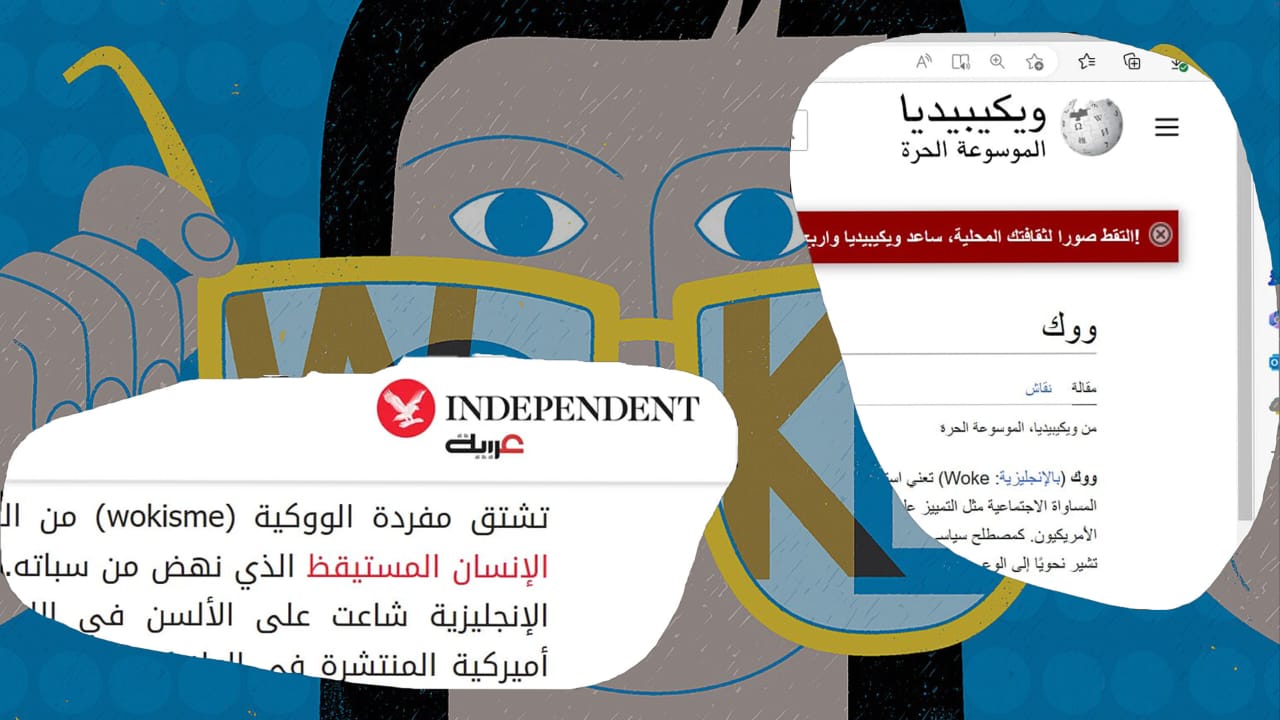Nesma Elsakaan
Political Correctness and Wokeism in Arab Contexts
Nesma Elsakaan

Political correctness (PC) and Wokeism (W) refer to ideas as well as policies widespread in America, especially among minority groups struggling for equality. They are not likewise present in all European countries. For instance, in Italy, while “il politicamente corretto” is referred to in political debates, W has started to circulate recently with very critical connotations (Meotti 2023). In Muslim-majority Arab societies, vulnerable groups are struggling for social equality. Can PC and W inspire activists and intellectuals in these contexts? As Western concepts, are they compatible with Islamic values?
PC and W are not touched on in Arab contexts, not even among transnational and global activist groups advocating human rights. On Wikipedia, there is an entry in Arabic on the emergence, development, as well as current debates on PC. Interestingly, the entry argues that early Arabs were familiar with PC, for they called a blind person “’Abū Baṣīr,” “or the One who sees well” (Wikipedia). However, calling a blind person “’Abū Baṣīr” does not imply being politically correct. It is a linguistic technique known in classical Arabic as “muḫᾱlafat ẓᾱhirat al-lafẓ,” a sort of irony that addresses something said in contrast to reality.
While PC is translated in Arabic as “ṣawᾱbiyyah siyᾱsiyyah” there is no exact translation of W. The few accounts on W- including Wikipedia’s entry- use morphologically adapted borrowings such as “wūk” and “wūkiyyah” (‘Awn 2022). One possible translation of W could be “ṣaḥwah” which is derived from the verbal root “ṣa-ḥa-wa”, or “to wake up.” This word refers to a social movement known as al-Ṣaḥwah al-’islᾱmiyyah (Islamic Awakening) that arose in Saudi Arabia in the late 1960s. Moreover, “ṣaḥwah” evokes the awakening of some Muslims after the disaster of 9/11. This awakening is addressed by scholar Khaled Abou El Fadl to define the duty of Muslims to wake up and “confront acts of extreme ugliness committed in their religion’s name” (Abou El Fadl 2014, 282). Thus, “ṣaḥwah” is not a proper translation of W. The Arabic language has different synonyms for “wake up,” such as “istayqaẓa”, the tenth verbal form of “ya-qi-ẓa.” “Yaqiẓ” is a noun for someone “awake.” “Yaqaẓah” is thereby a possible translation of W and “yaqiẓ” of “woke.”
Concepts appear before names. Perhaps for this reason there is not yet an Arabic word for W. Does this mean that Arabs are not aware of discrimination? In many contexts, inequalities based on gender, religion and sex orientation are overlooked. Moreover, the claims of PC and W are culturally not acceptable. PC is rhetorically cast as a synonym for homosexuality- and paedophilia (Rawᾱsiḫ 2022). Advocating homosexuality is taboo in practically all Arab cultural milieus. The misleading ideas about PC and W are the reason why they are difficult to integrate into Arab cultural contexts. There is also the problem of conspiracy theories and new forms of colonization. Western reformist projects are thought of as imperialistic. Arabs who adopt such projects are accused of being agents of the West and enemies of Islam (e.g. feminists.) Also, many believe that egalitarian ideas are grounded in religion. Consequently, no need to import Western values that are against Islamic ones (Elsakaan, 2019). But are PC and W against Islamic values?
To be politically correct is to avoid harmful language and actions towards the vulnerable. To be woke is to be aware of forms of discriminations and willing to change the society for the better. Both discourses bespeak awareness of injustices and imply the fighting of inequalities. This perspective does not violate Islamic values of justice (‘adl). In Islam, there is a covenant between God and Muslims: if they fail to establish justice and bear witness to the truth, God “is bound to replace [them] with another people who are more capable of honouring God through establishing justice on this earth.” (Abou El Fad 2003: 38) Furthermore, “the Qur’an explicitly commands Muslims to bear witness for truth and justice, even if the testimony is against themselves […] Thus, silence is a sort of suborning the corruption of the religion” (Ibid, 40). This is what the Qur’an says: “O ye who believe! stand out firmly for God as witnesses to fair dealing and let not the hatred of others to you make you swerve to wrong and depart from justice. Be just: that is next to Piety: and fear God for God is well-acquainted with all that ye do.” (Qur’an 5: 8)
Conclusion
For ideological reasons, PC and W are scarcely discussed in contemporary Arab contexts. It stands to reason that equivalent discourses and values are only possible if they come from indigenous debates without any Western pressure.
References
‘Awn, Mushir Basil 2022, Hal tuṣbiḥ al-ṣaḥwah al-rᾱdikᾱliyyah ’uṣūliyyah yasᾱriyyah jadīdah? “Indipendent Arabia”, https://bit.ly/41NNzeM
Abou El Fad, Khaled 2003, “The ugly modern and the modern ugly: reclaiming the beautiful in Islam”. Safi, Omid ed., Progressive Muslims: On Justice, Gender and Pluralism, London: Oneworld Publications.
Abou El Fad, Khaled 2014, Reasoning with God: Reclaiming Shari‘ah in the Modern Age, Maryland: Rowman &Littlefield.
Elsakaan, Nesma 2019, Il femminismo islamico in Egitto. Donne, religione e giustizia di genere, Roma: Aracne.
Meotti, Giulio 2023, I nuovi barbari. In Occidente è vietato pensare (e parlare)? Torino: Lindau.
Rawᾱsiḫ 2022, al-Ġarb wa-talwīṯ al-ṭufūlah: nihᾱyat ‘aṣr al-barᾱ’h, Kuwait: Rawᾱsiḫ.
Wikipedia: Ṣawᾱbiyyah siyᾱsiyyah, https://bit.ly/3kQPu1C
Wikipedia: Wūk, https://bit.ly/3F19DsF
 Nesma Elsakaan is assistant professor of Arabic language and literature at the University of Palermo (Italy) and is a member of the Union Européenne des Arabisants et Islamisants (UEAI).
Nesma Elsakaan is assistant professor of Arabic language and literature at the University of Palermo (Italy) and is a member of the Union Européenne des Arabisants et Islamisants (UEAI).
Back to Meridian 4.png)

